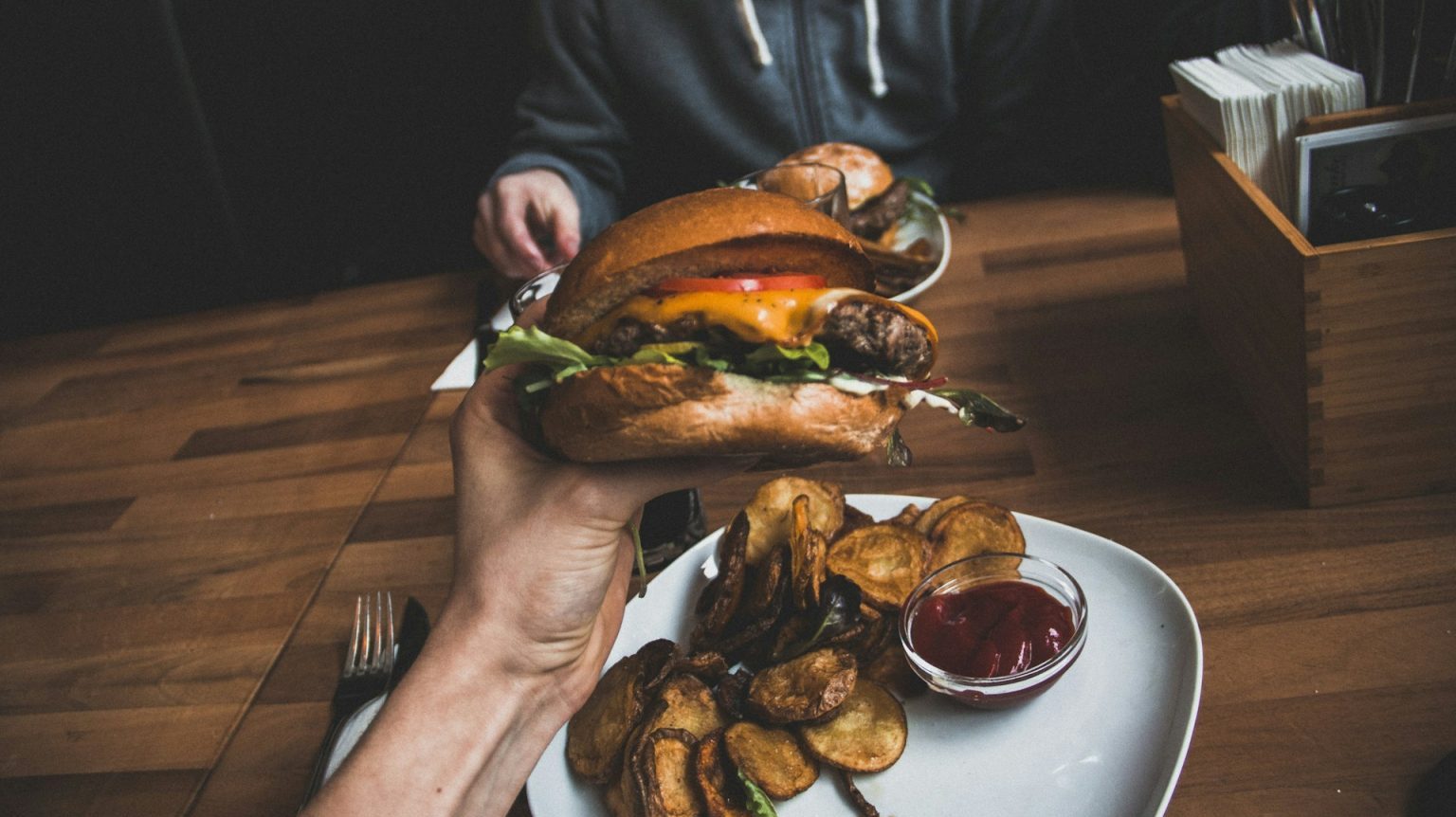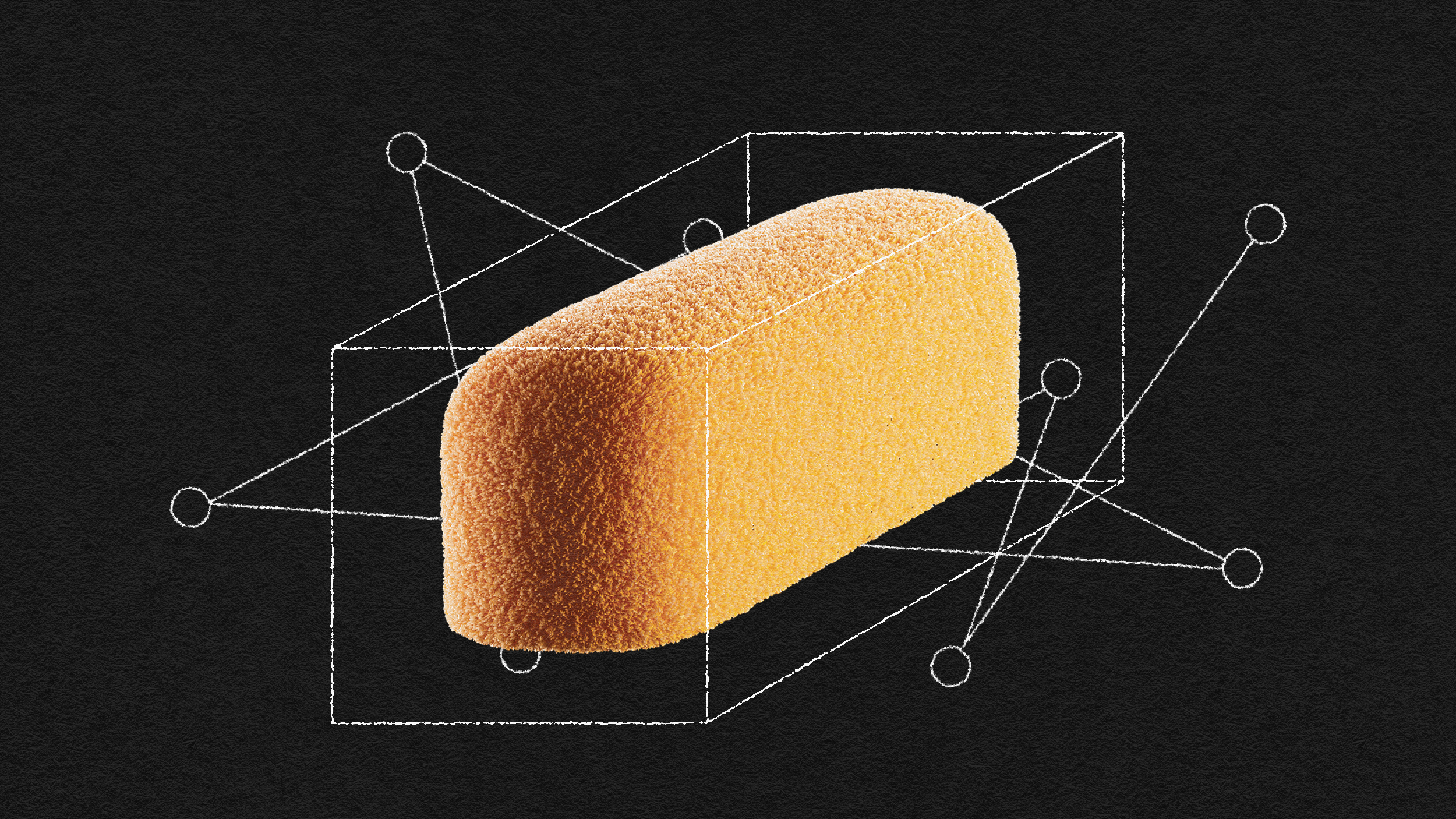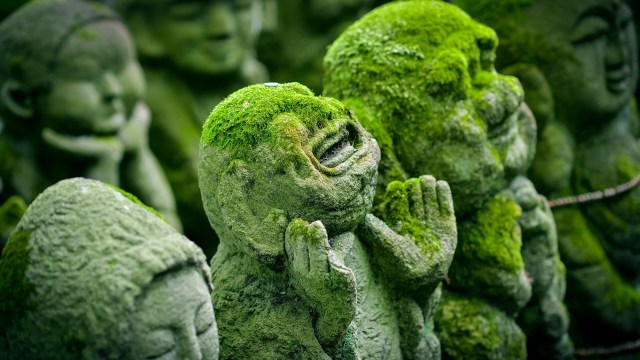6 easy ways to transition to a plant-based diet

Credit: sonyakamoz / Adobe Stock
- Transitioning to a plant-based diet could help reduce obesity, cardiovascular disease, and type 2 diabetes.
- Humans are destroying entire ecosystems to perpetuate destructive food habits.
- Understanding how to properly transition to a plant-based diet is important for success.
Industrial farming is having a catastrophic impact on the planet—and our health. It’s tough to separate the two given how dependent we are on the environment for survival. While author and farming industry executive Philip Lymbery strikes an apocalyptic tone, his message is not overstated.
“Every day there is a new confirmation of how destructive, inefficient, wasteful, cruel and unhealthy the industrial agriculture machine is. We need a total rethink of our food and farming systems before it’s too late.”
Earth is not resource-infinite. We’re destroying entire ecosystems to feed our destructive food habits. Nutrition isn’t the only concern. One of the major culprits of deforestation is palm oil, which is widely used in skincare products as well. Everywhere we turn, we’re decimating ecosystems and species for personal gain.
While a plant-based diet isn’t the solution to every problem, it can certainly help. Whether you’re concerned about your own health or that of the planet, transitioning to a plant-based diet isn’t impossible. In fact, it can be quite delicious. Below are six strategies to help the process along.
Richard Dawkins: No Civilized Person Accepts Slavery So Why Do We Accept Animal Cruelty? | Big Thinkwww.youtube.com
Get your hands dirty—in the kitchen
Quarantine offered an entire world the opportunity to get into the kitchen and put on a chef’s apron. Complaints about “not enough time” are the biggest barriers to preparing home-cooked meals. Of course, pandemic fatigue has resulted in a number of recent chefs ordering out more. That said, this is the perfect time to try your hand at new dishes. With infection rates increasing across the country, stocking up on seasonal vegetables is a great idea.
Simple seasonal ways to begin your plant-based exploration include roasted kabocha squash, Bombay potatoes, and no-chop pumpkin soup. If you’re feeling a bit more adventurous, Masoor Dal Tadka will keep you warm into the winter months. A delicious sweet potato salad will never fail you. This round-up of 25 vegetarian recipes will keep you busy for a few months (or a month if you’re ambitious).
Educate yourself on the benefits
Education is essential for beginning any endeavor. Weeding through propaganda and bunk science to find credible evidence of any diet is difficult, though many experts agree that for individual and societal health, a plant-based diet is key.
Even vegetarianism has its pitfalls. For example, one-fifth of all calories consumed by Americans come from nutritionally-worthless white flour. If you’re eating processed bread every day, you’re missing out on the benefits of a rich and varied diet.
Many of the “diseases of affluence,” such as cardiovascular and obesity-related ailments, originate with a poor diet (and lack of exercise). Meat has been an essential component of the human diet throughout our evolution. Today, we eat too much of it—and too much of it is produced in factory farms. Transitioning to a plant-based diet could help cut down on carbon emissions and the aforementioned diseases.
Plants are full of valuable phytochemicals and antioxidants that support a strong immune system. A (non-processed) plant-based diet reduces inflammation and offers plenty of fiber. It has been shown to reduce your risk of diabetes, stroke, and heart diseases. Those are all great reasons to transition.
Begin your journey with a single step
Going cold turkey rarely works for addicts. The same is true of diets. If you’re interested in a plant-based diet, try to eat veg every other day for a few weeks. Notice how your body reacts on days you eat this way compared to other days. Gradually phase out meat products. Attempt meat-free weekdays and see if your craving for meat persists on the weekend. Try using meat as a garnish instead of the main course.
More importantly, have a replacement plan. Dropping all meat products to consume frozen dinners isn’t the best course of action. Filling your cart with bags of foods you’ve never eaten before will overwhelm you. Prepare meals as you taper off of meat; arm yourself with a broad knowledge of healthy plants and vegetables. At some point, you might forget what you’ve been missing.

Photo: anaumenko / Adobe Stock
Start with foods you already love
The good news is that you likely have a number of plant-based side and main dishes that you love. Transitioning into a new diet requires a certain level of enjoyment. Otherwise, you’re going to loathe eating, and eating should bring some level of satisfaction.
Try a one-to-one ratio to begin. On one night, cook a meal you love. Then try something completely new the next night. Follow that up with old faithful. This way, you constantly have new dishes to look forward to yet don’t get stuck in thinking you have to be creative every single day. You’ll likely find some winners and decide not to repeat other dishes. Regardless, you’ll have a broader menu to work from.
Avoid ingredients you can’t pronounce
The produce section of your grocery store provides almost everything you need to survive. You can likely pronounce every ingredient in this section. There’s a vast difference between food and foodstuffs. Plenty of plant-based companies offer too much of the latter. Potato chips are technically vegetarian, and some use simple ingredients, yet it’s easy to fill your cart with foodstuffs. The health benefits of this are not only negligible but potentially dangerous.
Qi Sun, an assistant professor of nutrition at the Harvard T.H. Chan School of Public Health, explains. “If you eat a vegan diet, but eat a lot of french fries, refined carbs like white bread, white rice, that’s not healthy.” He suggests “emphasizing fruits and vegetables. Not fruit juice but whole food. And nuts.”
Utilize the wisdom of the internet—but don’t get indoctrinated
There’s a lot of terrible advice—and worse, propaganda—on the internet. While you likely don’t want to eat eggs every day, they’re not “toxic,” as one popular documentary claims. Eggs are one of the best low-cost, high-value foods around.
Read websites like Everyday Health, which uses clear language, like “may improve” and “may decrease,” with links to credible studies. This way you follow the going science without becoming fanatical about a particular diet or being disappointed if it turns out the research doesn’t hold up. Good science evolves with evidence. And right now, the evidence points to more vegetables in our diets.
—
Stay in touch with Derek on Twitter and Facebook. His new book is “Hero’s Dose: The Case For Psychedelics in Ritual and Therapy.”





